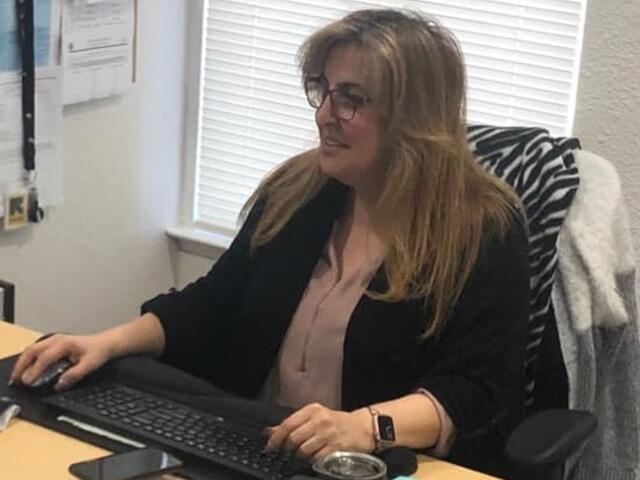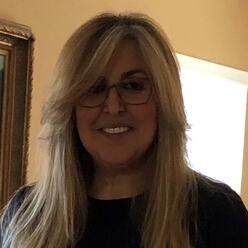
When Vivien Jacob came to the United States as a refugee through the IRC in 1990, little did she know she would one day end up serving as the Director for the IRC's Turlock/Modesto office. The following interview by community engagement outreach intern Perry Fishel takes a look at Vivien's nearly 19-year legacy with the IRC.
How did you get involved with the IRC?
I came as a refugee myself back in 1989/90 and I was resettled by the IRC. I became passionate about the work when many years later, I was trying to petition for my cousin to come as a refugee. When I called the local agency, they told me they had a position open and asked if I wanted to apply for it. I was hesitant because I had just had a baby and was going to college, too, but I still decided to apply. Long story short, I applied and got the position in 2002, first thinking it would be a temporary job and I would only be there for a couple of years until they closed the position. But as time went on, the population of the program grew and our offices expanded. Now we have so many different programs and not only help refugees, but also asylees and victims of trafficking.
What do you like most about working for the IRC?
I love that we help a very vulnerable population. When they come here, everything is very hard to navigate and we work to streamline the process and have a smooth transition and a good experience resettling in the U.S. What is also rewarding is to see the same clients after a few years settled, self-sufficient, and giving back to the community.
What have you learned from working at the IRC?
I’ve learned a lot! One thing I have learned is that when refugees first arrive they are very hesitant because they don’t know you and they don’t know if they can trust you. After a while, they become more comfortable and you are able to establish a close relationship with them and they come to you for everything. I’ve even had an experience with a client where they called me and said, “I’m lost. Can you please help me get home?” It takes some time to build that relationship and trust.

Do you remember a specific moment in which you realized the impact of your work?
I always use this story about a family I helped to resettle many years ago. It was a single mother with four children, and one of the children had developmental problems. We were told her child would not be able to talk or walk and their future life looked uncertain. The IRC connected her with services and helped to take her child to the majority of their appointments. Today that child has grown up, graduated from school, and is a different person all because of the services from the IRC, the community and local agencies we connected them with. When she [the mother] first came to the U.S., she was very lonely and struggling, but today I can attest that she has become a U.S. citizen, is self-employed, and a home-owner. The care we were able to provide was life-changing for that family. It feels good to know you have touched lives and helped others to have a better future.
How has the IRC in Turlock/Modesto changed over the years of you working here?
When we opened the office it was only to resettle one group population. We have way more staff now. When I started, it was really like a one-man show and I had to wear many hats, but now we have around 24 staff members. I hope we continue to see IRC Turlock grow and provide more services that are needed.
Could you expand more on your “one-man show” days at the IRC in Turlock/Modesto?
IRC Turlock was opened in 2000 and because of 9/11 and the decreasing number of arrivals, the office closed in 2003. In 2004, the program reopened and I was offered the position, but they told me there was no budget to open an office. Since I had been working from home, I decided to open my home up to use as the Turlock office. For the first 1.5 to two years it was just phone calls, but later on, clients started to come into my house for appointments. After two years, the numbers began increasing and we were able to move operations away from my house and into a small office.
What are your hobbies outside of work?
I love volleyball, I do lots of cooking and baking, and I am also involved with my Assyrian church where I help to organize activities involving the Bible school, picnics, and All Saints Eve events.
What are you looking forward to a year from now?
For COVID to be done, to hopefully be back to normal, and to be back working in the Turlock office and interacting with real people, not a screen.
Why should others choose to support or get involved with the IRC?
The IRC works like a chain reaction. When the people we help to resettle spend their future here working and helping other newcomers, they are essentially paying it all back and giving to our community.